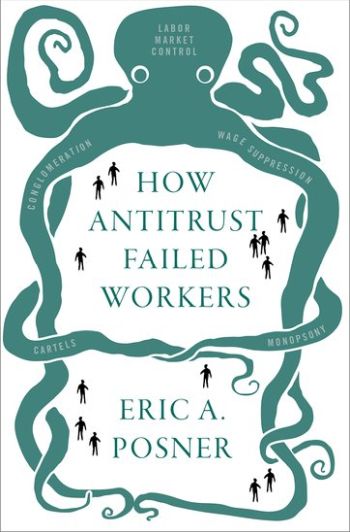
A trenchant account of an unacknowledged driver of inequality and wage stagnation in America: the abandonment of antitrust law, which has allowed corporations to combine into a smaller number of massive conglomerates whose market dominance robs workers of their bargaining power.
The consequences of the massive consolidation wave in corporate America that began decades ago are now increasingly apparent: labor markets are no longer competitive. Since the 1970s, Americans have seen income and wealth inequality skyrocket—and job opportunities stagnate. There are many theories of why this happened, including the decline of organized labor and the introduction of tax policies that favored the rich. However, another crucial event was the precipitous decline in antitrust enforcement that began in earnest during the Reagan administration. With ever-increasing combination and consolidation, workers had fewer options to turn to. In How Antitrust Law Failed Workers, Eric Posner documents the role of antitrust in our economy and why it failed. Only through reforming antitrust law can we shield workers from employers' overwhelming market power.
As Posner explains, antitrust laws were created to protect the labor market by attacking monopolies, like Facebook and Google today, that are able to either charge high prices or degrade the quality of their services because customers cannot switch to competitors. Antitrust laws are also used to attack business cartels that can fix prices. In recent years, it has become clear that firms with market power not only charge higher prices; they also suppress wages and output. Many employers use anticompetitive devices—like covenants not to compete for workers and no-poaching agreements—to advance their market power at the expense of workers.
Posner shares stories that illustrate how the problem is playing out on the ground, and then contextualizes what is going on via a concise history of the American economy and labor relations since the 1980s. Essential reading for anyone interested in fighting economic inequality, How Antitrust Failed Workers also offers a sharp primer on the true nature of the American economy—one that is increasingly uncompetitive and tilted against workers.